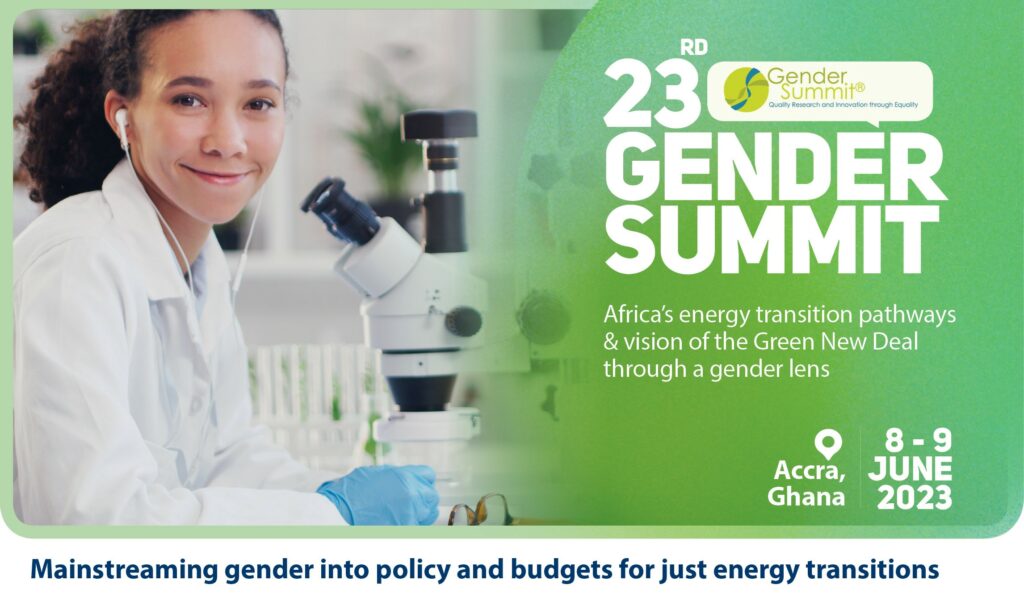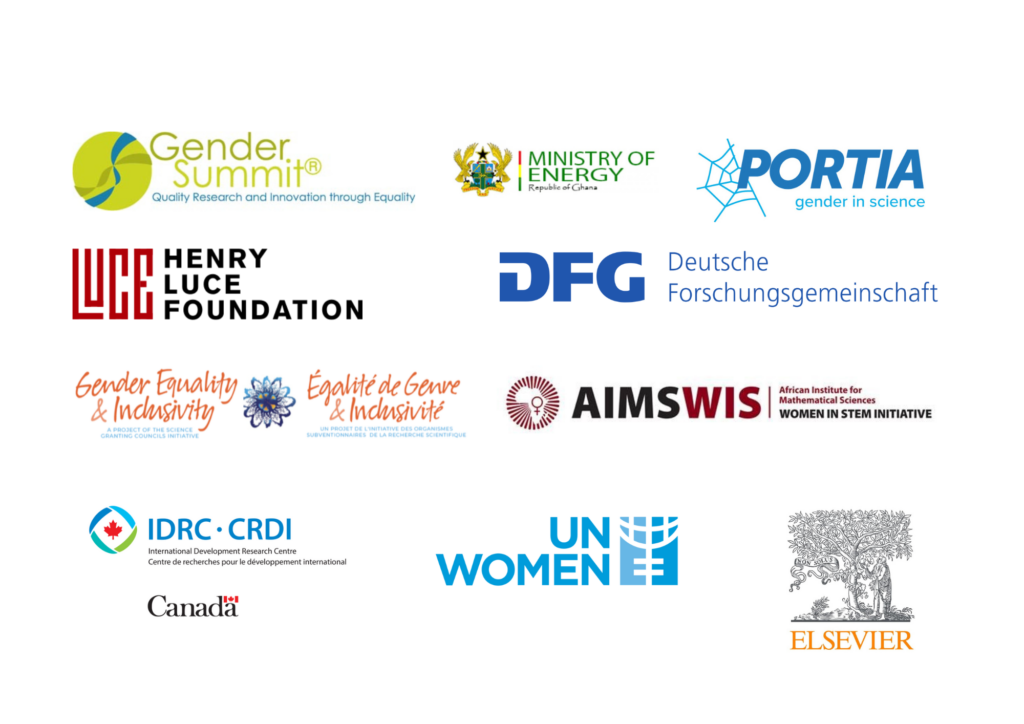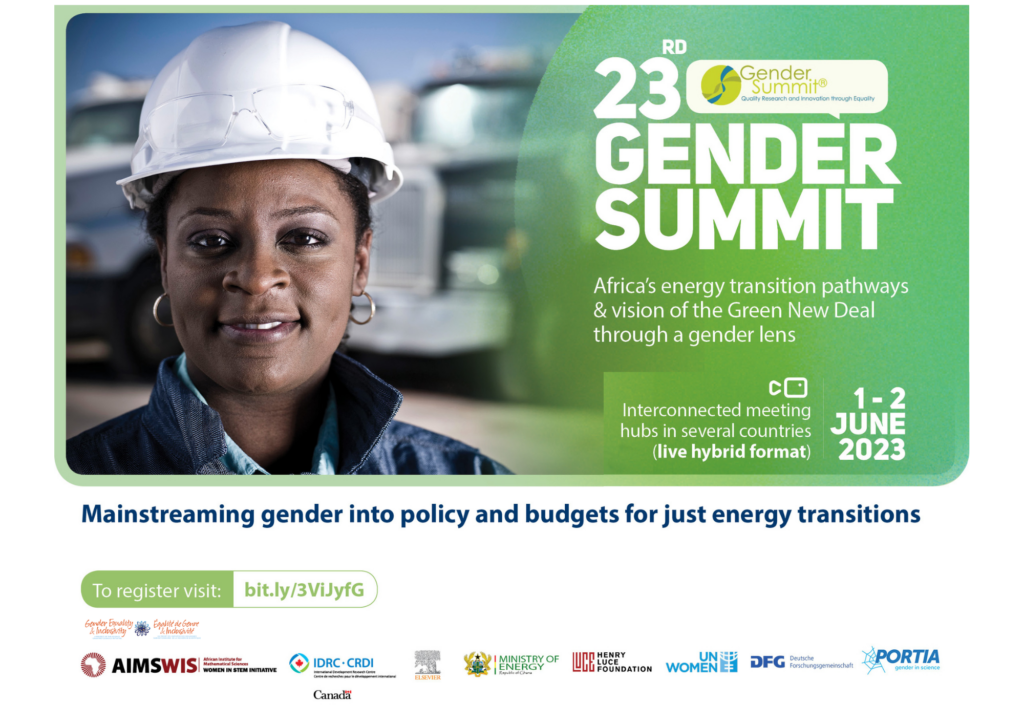Background
The Gender Summit was established in 2011 to facilitate a dialogue on gender equality issues in science. Each event brings together scientists, gender scholars, policy makers, and relevant stakeholders in science endeavours concerned about equality and quality in research results and outcomes.
This will be the fourth Gender Summit focused on Africa. The three previous ones were in Cape Town, 2015; Kigali, 2018, and the one originally envisaged to be in Nairobi in 2020 but because of COVID 19 was delivered as a virtual event.
Aims of GS23
The key concern of GS23 is about gender equality issues in energy transition and the Green New Deal (GND) and how research can provide the evidence needed to inform policy and practice. The potential topics include:
• impact on different social groups, and the patterns of inequality
• how will the transitions contribute to achieving the social objectives?
• whose values, knowledge, priorities, and interests will shape the policies and actions?
• what role is there for universities to support social policy, regulation, participation, and collective action?
• how to ensure local-level livelihood and production systems?
• how to deal with the displacement of people or food crop production to make way for biofuels?
• what role is there for energy policies to protect domestic users in low-income households?
• how to prevent bias in job markets and governance institutions dominated by men, which excludes women from participation and decision making?
Focus of GS23
GS-Africa 2023 will ask:
1) What is the role of academia in sustainable energy transitions, e.g., in building capacity and human resources that can support just and gender sensitive sustainable energy transitions? What changes are need to the curriculum to maximise supply of talent? How to achieve greater participation of women in higher education to become energy transition professionals.
2) What is the role of Civil Society organisations in promoting sustainable energy transitions: e.g., in identifying the social conditions and systems required to ensure just and gender sensitive sustainable energy transitions? What are the challenges for communities in rural, peri-urban, and urban settings? What is the true impact of moving away from firewood and biomass as the key household energy?
3) What is the role of government in shaping energy transitions pathways and processes: e.g., creating policy frameworks and targets that recognise the needs of all citizens? How can government departments implement gender mainstreaming into their missions and agendas for energy transition?
4) What is the role of environmental wellbeing: e.g., how to ensure that protection of natural ecosystems on which communities rely for their livelihood, and how will the plans for a sustainable and just energy transition impact on their survival of local communities? How to monitor and prevent the impact of environmental degradation on communities?
GS23 Organisation
GS-Africa 23 is convened by Portia (founder of the GS platform) and the African Institute of Mathematical Science (AIMS), as part of an ongoing partnership. The lead partners will include influential science institutions (academic, funding, policy and professional) in Africa and in countries that collaborate with Africa on research and innovation.
Program Dates
June 01-02, 2023 (Virtual Session)
June 08-09, 2023 (In- Person Session)
Register HERE!



